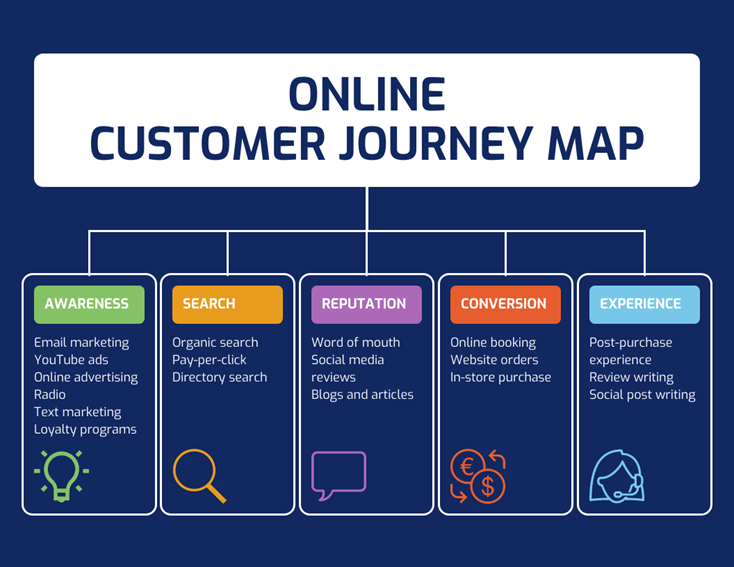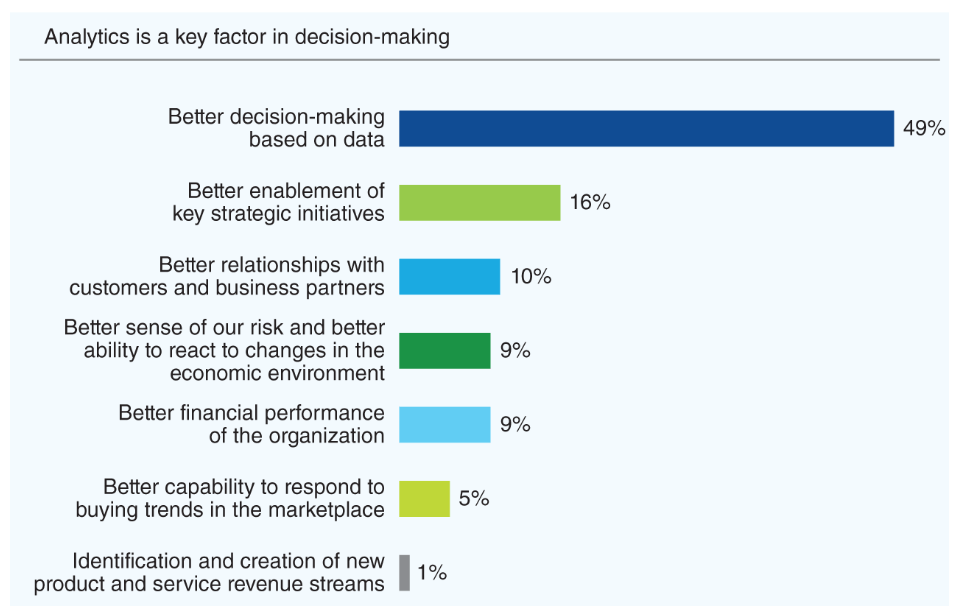Once in a blue moon, a technology solution emerges that is so powerful people describe it as “game-changing”. In the world of ecommerce marketing, automation is exactly that, revolutionizing the way businesses operate in the digital landscape.
The simple truth is those who fail to adapt will be left behind. And when you consider that 79% of companies use automation tools in their marketing strategy, you’d be a fool to ignore their utility.
By harnessing advanced technologies and intelligent algorithms, ecommerce marketing automation empowers small business leaders, entrepreneurs, and marketers to streamline their marketing efforts, boost customer engagement, and achieve sustainable growth.
In this post, we’ll delve into the benefits of ecommerce automation tools in 2024, exploring how it can transform businesses and drive success in the digital age.
What is eCommerce Marketing Automation?

Before we delve into the benefits, let’s define what marketing automation for ecommerce entails.
Ecommerce marketing automation refers to the broad use of software to automate an online business’ tasks and processes. It enables business leaders to do away with repetitive tasks, personalize marketing efforts, and optimize customer engagement across various channels.
- Order Processing Tools: Automates the order fulfillment process, including order routing, picking and packing, shipping label generation, and updating order status.
- Customer Relationship Management Tools: CRM tools automate the management of customer interactions and data. They assist in tracking customer behavior, managing customer support tickets, and providing personalized experiences.
- Ecommerce ERP software: These tools allow marketers to integrate their day-to-day tasks with other business functions, such as inventory management, order processing, and customer data.
6 Benefits of eCommerce Automation
In this section, we’ll explore several benefits of ecommerce marketing tools that are sure to give your business a competitive edge.
Streamlined Customer Journey
The customer journey serves as a cornerstone of successful online store marketing automation.
Imagine a scenario where a potential customer visits your website, explores different products, and adds items to their cart. With ecommerce customer journey automation, you can automate personalized follow-up emails to remind them of products they may want to buy.
This personalized approach not only increases the chances of conversion but also demonstrates your commitment to providing a smooth and convenient shopping experience.
Furthermore, automation allows you to segment your customers based on their preferences, behavior, or purchase history. With this information, you can send targeted and relevant marketing messages to specific customer segments, ensuring that each interaction is meaningful and tailored to their needs.
Whether it’s a personalized email showcasing new products based on their past purchases or a customized social media ad that aligns with their interests, a streamlined customer journey builds trust, fosters engagement, and ultimately drives customer loyalty.
Through ecommerce marketing automation, you can automate the entire customer lifecycle, from acquisition to retention. Not only will this save you time and resources, it’ll also enable you to deliver a consistent experience across various channels – from email to social media and website interactions.

Increased Revenue and ROI
By leveraging automation tools and strategies, businesses can optimize their marketing campaigns to maximize revenue generation and make the most of their marketing investments.
For example, automation allows for precise tracking and measurement of campaign performance, providing valuable insights into which campaigns and channels are delivering the highest ROI.
Automation also plays a crucial role in nurturing leads and guiding customers through the sales funnel. By automating lead nurturing campaigns, businesses can deliver targeted content and offers to prospects at each stage of their journey, increasing the likelihood of conversion.
Additionally, automation can be employed to recover abandoned carts by sending reminders and incentives, effectively recapturing potential lost revenue.
In short, ecommerce marketing automation empowers businesses to enhance revenue generation, optimize marketing ROI, and improve overall campaign effectiveness.
Improved Operational Efficiency
A core objective of many businesses is to streamline their operations and enhance overall efficiency. Automation delivers this in two ways:
- Reducing manual oversight of repetitive tasks (sending emails, posting Instagram ads, data entry, etc).
- Optimizing workflows by delivering data and tasks to relevant systems, departments, and team members.
Consequently, business leaders and executives can instead home in on strategic initiatives and core business activities, allowing them to focus on the broader picture of marketing trends.
One key area where automation improves operational efficiency is in social media marketing. For instance, you could automatically plan and submit posts as part of a ‘content calendar’, reducing the time spent on daily social media management while ensuring consistent brand presence.
Another aspect of operational efficiency is optimizing and automating your workflow. With tools like ecommerce ERP software, you can manage your entire business from a unified platform. On top of that, you gain access to real-time inventory management, SEO optimization, and financial reporting, so you can focus on improving your sales and connecting with customers.
The more tasks that can be scheduled, controlled, and optimized from one place, the more your workflow becomes better aligned and easier to manage. It also makes you less likely to miss potential problems and helps you to make more informed decisions.
Overall, improved operational efficiency through ecommerce marketing automation empowers businesses to operate more effectively and achieve better outcomes.
Enhanced Customer Experience
Ecommerce marketing automation plays a pivotal role in delivering an exceptional customer experience, providing engaging interactions with clients for increased satisfaction and loyalty.
Automation allows for personalized website experiences, with dynamic content and targeted offers based on individual customer profiles. Emails, triggered by specific customer actions or milestones, demonstrate attentiveness and care, making customers feel valued and appreciated.
Moreover, automation enables businesses to provide tailored product recommendations based on customer preferences and past purchases. By analyzing customer data, automation tools can identify patterns and suggest relevant products or complementary items, enhancing the shopping experience and increasing the chances of cross-selling or upselling.
Through streamlining processes and automating customer support, businesses can provide timely assistance and resolve inquiries more efficiently. Automated chatbots and customer service workflows ensure prompt responses to customer queries, reducing response times and frustration.
Marketing automation enhances the customer experience by enabling personalized interactions, tailored product recommendations, multi-channel engagement, and efficient customer support. By leveraging automation tools, businesses can create memorable experiences, build strong customer relationships, and foster brand loyalty in the competitive ecommerce landscape.
Improved Data-Driven Decision Making
The most successful online businesses have one thing in common: they all harness the power of data to make informed and strategic decisions. In the context of marketing automation tools, businesses can gain access to accurate and up-to-date information that drive their marketing strategies and overall success.
By exploring ERP system examples and implementing them into their automation processes, businesses can centralize and synchronize data across various systems. This seamless flow increases data accuracy, gives teams better insight into their customer base, and ensures businesses have a holistic view of their operations.
So what sort of data is collected? Marketing automation tools allow businesses to collect and analyze vast amounts of customer data. From purchase history and browsing behavior to demographic information and social media engagement, businesses can obtain a comprehensive understanding of their customers.
Metrics such as conversion rates, click-through rates, and customer lifetime value provide insights into the effectiveness of different marketing initiatives. With this data, businesses can identify successful strategies, optimize underperforming campaigns, and allocate resources more effectively.
On top of this, automation facilitates A/B testing and experimentation, where businesses can test different variables and measure their impact on key performance indicators. This iterative process enables marketing teams to refine their strategies and make data-driven adjustments to achieve better results over time.

Increased Business Scalability
Ecommerce marketing automation offers business leaders the ability to scale and expand their operations more efficiently. By implementing automation tools and strategies, businesses can handle increased volumes of customers, orders, and marketing activities without sacrificing quality or customer satisfaction.
Tasks like order processing, inventory management, and customer support can be easily automated, freeing up valuable time and resources for businesses to focus on growth initiatives. This scalability enables businesses to handle higher transaction volumes and accommodate a growing customer base without overwhelming their existing infrastructure.
Automation enables businesses to standardize and replicate successful marketing campaigns across different channels and markets. Businesses can easily replicate and deploy proven campaigns, saving time and effort in creating new ones from scratch.
This scalability allows businesses to expand their reach and tap into new markets, while maintaining a consistent and effective marketing approach.
Furthermore, as previously mentioned, the integration of ecommerce ERP software allows businesses to centralize and manage their operations more effectively. This ensures that businesses have the necessary infrastructure and resources to support growth and expansion, without compromising on customer satisfaction.
Is eCommerce Marketing Automation Worth The Investment?
Investing in marketing automation for ecommerce can yield significant returns, especially in the dynamic digital landscape of 2024.
The benefits of enhanced customer journeys, increased revenue and ROI, improved operational efficiency, enhanced customer experience, improved data-driven decision making, and increased scalability make it a valuable investment for small business leaders and marketers.
However, it remains crucial to choose the right ecommerce software and ensure seamless integration with other systems to maximize the benefits and drive success.
So, the answer to that question is yes – as long as you go into it with the right information and a ‘growth-focused’ mindset.
Final Thoughts
In the highly-competitive ecommerce landscape, staying ahead requires businesses to leverage cutting-edge technologies. And when it comes to marketing – automation tools are the best way for your company to stand out in crowded online markets.
From reducing manual tasks to making more data-driven decisions, automation opens up a world of opportunities and insights. As such, embracing these powerful tools can transform businesses and unlock their true potential in the digital age.
To get started, you should aim to implement automation on a piecemeal basis, recording successes and failures as you go. Then, you’ll be able to scale your operation with greater ease and gain a greater understanding of the direction your marketing efforts should take.


